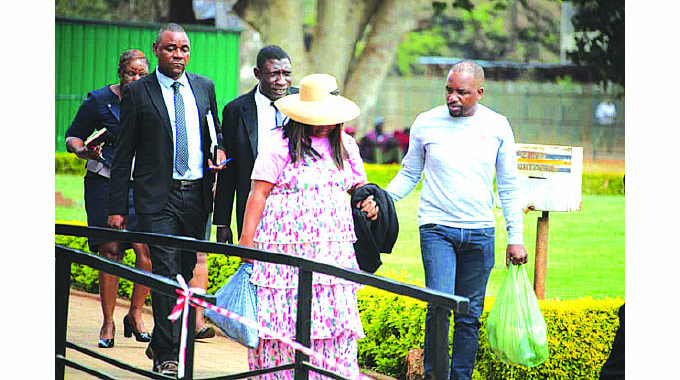HARARE – A few months ago, Zimbabwe’s business elite and general public were stunned by revelations that Gray Homes Construction, a once-celebrated property development company, had allegedly defrauded Miniyothabo Baloyi-Chiwenga—wife of Vice President Constantino Chiwenga—of nearly US$1 million.
The accused masterminds behind the operation? Company founders Annavestah and Gray Mudiwa, a couple now at the centre of one of Zimbabwe’s most high-profile real estate scandals in recent memory.
That the alleged victims include one of the country’s most powerful families has added fuel to public outrage—and deepened fears about the lack of consumer protection in Zimbabwe’s fast-growing but poorly regulated property development sector.
This article launches “Distinguishing Between the Honest and the Deceptive,” a five-part investigative series that pulls back the curtain on property fraud, the systems that enable it, and the lives torn apart in its wake. We begin with the rise and dramatic fall of Gray Homes Construction.
It all began in March 2023, when the Mudiwas reportedly assured Baloyi-Chiwenga they could construct a luxury double-storey house, a cottage, and a boundary wall in just 90 days. Convinced by their promises, she paid US$560,000 upfront. Months later, the project was abandoned. The loss? US$389,100.
Then came June 2023. A second deal was struck—this time for a warehouse at Chivaraidze Farm in Goromonzi. Again, trust turned costly: Baloyi-Chiwenga lost US$390,000 of the US$550,000 paid.
By September, the cycle repeated itself. She funded what was supposed to be a shopping mall at Silalatshani Business Centre in Filabusi, transferring US$158,000. But most of the money allegedly went to personal use, leaving a loss of US$151,000.
In total, the Vice President’s wife lost over US$930,000 in under a year—reportedly with no completed project to show for it.
Legal Action—and Sudden Silence
The Mudiwas were arrested and charged with fraud. The case attracted widespread media attention, seen by many as a test of the justice system’s willingness to hold influential scammers accountable.
But in a stunning turn of events, Baloyi-Chiwenga withdrew the charges in February 2025. No explanation was offered.
Legal analysts and public commentators were left guessing: Was there a private settlement? Was political pressure involved? Or had other motives been at play?
Whatever the reason, the decision did little to clear the Mudiwas’ names.
A Pattern Too Familiar
Following the dropped charges, more victims stepped forward, revealing a troubling pattern of deception that extended far beyond the Chiwenga family.
-
Anyway Choto, a Marondera businessman, says he lost US$105,963 in an incomplete warehouse deal.
-
Gray Hardware supplied materials worth US$79,000—only half was ever paid for.
-
Creative Itel Pvt Ltd claims the Mudiwas ordered phones “for government officials,” then defaulted on US$21,160.
-
Never Tembo, director of Virtue Trade Petroleum, contracted Gray Homes for a double-storey home valued at US$390,000. Only a fraction of the work—US$117,000 worth—was completed.
With seven fresh fraud counts now before the courts, the couple’s alleged empire of deceit is unraveling.
After four months behind bars, the Mudiwas were released on US$500 bail each in February 2025. The court imposed conditions: surrender of passports, weekly check-ins with CID, and strict residency requirements.
Their fraud trials continue.
Most disturbingly, if someone of Baloyi-Chiwenga’s stature can be scammed so easily, what protections exist for the average Zimbabwean trying to build a modest home?
